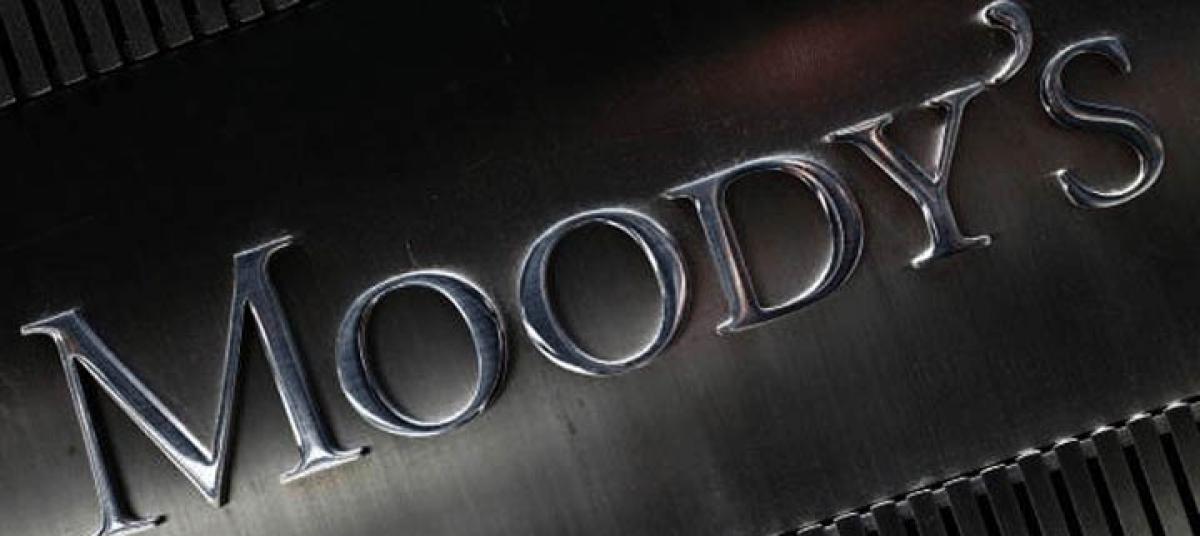Live
- Indian students' concerns about employment, safety, and visas discourage them from applying to UK universities
- Candlelight Concerts Makes a Dazzling Debut in Hyderabad with Sold-Out 'Tribute to Coldplay' Show
- Shubman Gill Sustains Thumb Injury Ahead of Perth Test; Devdutt Padikkal Joins Test Squad
- Unlock Loot Boxes, Diamonds, Skins, and More Exciting Rewards with Garena Free Fire Max Redeem Codes for November 16
- Regarding the DOGE Plan, Vivek Ramaswamy stated, "Elon Musk and I Will Take a Chainsaw to Bureaucracy"
- Sudanese army says repulsed paramilitary forces attack in western Sudan, killing over 80
- Jaipur Open 2024: Baisoya makes a grand comeback to clinch title in marathon playoff against Rashid Khan
- Jamaat-e-Islami Hind President asks cadre to reach out to larger society beyond community
- Why PM mum on Caste Census, removing 50 pc quota limit: Rahul Gandhi
- Barrackpore Municipality Vice-Chairman found dead at home, suicide note suggests blackmail
Just In

x
Highlights
Moody\'s Investors Service on Wednesday cautioned that a loss of momentum on reforms may hamper investment and prove to be a \'downside factor\' for Indian companies, even as it said most corporates will benefit from strong economic fundamentals and accommodative monetary policy.
Moody's Investors Service on Wednesday cautioned that a loss of momentum on reforms may hamper investment and prove to be a 'downside factor' for Indian companies, even as it said most corporates will benefit from strong economic fundamentals and accommodative monetary policy.

It further said that weak global cues and an impending US rate hike may also have an impact on Indian businesses. Moody's said that a failure by the government in implementing key reforms such as Goods and Services Tax (GST) and land acquisition laws could hamper investment and signal a derailed reform prospect.
"A healthy 7.5 per cent GDP growth for India for the fiscal year ending March 2017 and a pick-up in manufacturing activity will be broadly supportive of business growth," Moody's VP and Senior Credit Officer Vikas Halan said.
But despite these overall supportive domestic conditions for the country's corporates, potential headwinds loom from a loss of reform momentum, he said. The Modi administration so far this year has been unable to enact legislation on key reforms, including unified goods and services tax and the Land Acquisition Bill.
"It seems highly unlikely that the major reforms will get enacted by the Upper House of Indian Parliament where the ruling coalition is in minority. A failure to implement these reforms could hamper investment amid weak global growth,"Halan added.
The ruling NDA government has said it is willing to discuss with the Congress to get the GST Bill passed in the winter session of Parliament beginning tomorrow. The passage of the Bill in the forthcoming session is essential to ensure rollout of GST from April 1, 2016.
In its 2016 outlook for Indian non-financial corporates, Moody's said a 7.5 per cent growth, easing inflation resulting in lower interest rate will lead to improving corporate cash flows and be broadly supportive of business growth.
"However, the corporates remain vulnerable to the volatile Indian rupee as against the US dollar and to low commodity prices, which has in turn led to a sharp decline in external trade," Halan added.
The fall in commodity prices has benefited many Indian corporates given the country's status as a net importer of raw materials and its recent history of high inflation. But low commodity prices will result in deterioration of credit metrics of metals and mining companies, it said.
The other 'downside factors' listed by Moody's in its report are loss of reform momentum leading to annual GDP growth falling below 6 per cent, resulting in a deterioration of credit metrics.
Also, higher interest rates brought on by rising inflation or exchange rate volatility, which is resulting in a tight funding environment is a factor.
Moody's said that the upside factors include further government measures that could sustain the GDP growth at 8 per cent or more, leading to a broad-based improvement incorporate credit metrics.
Besides, improvement in the global macro-economic environment leading to stabilising commodity prices and credit markets would be positive, it said.
Stating that loss of reform momentum remains a concern, Moody's said: "The government is unlikely to win a majority in the upper house if it keeps losing state elections like it did recently in Delhi and Bihar. Opposition parties are unlikely to allow key reforms to go through.
"By sector, Moody's expects upstream oil and gas companies to benefit from lower fuel subsidy burdens, although low crude and domestic natural gas prices will continue to hurt profitability.
Refining and marketing companies meanwhile should benefit from healthy margins as demand growth outpaces expected capacity additions, it said.
Moody's negative outlook for the steel industry reflects elevated leverage and an extended period of low prices due to continuing steel imports, while the negative outlook for metals and mining companies reflects bleak global commodity prices.
In the real estate sector, Moody's expects demand to improve in 2016 on the back of lower interests rates, although approval delays could push back project launches for property developers.
In the auto sector, Moody's said the retail sales volume will grow 6 per cent in 2016 on the back of sustained grow thin passenger vehicles sales and a recovery in commercial vehicle sales.
The telecom companies that Moody's rates in India have reported improving revenue per user (ARPU) and EBITDA margins, however, the competition remains intense and the regulatory framework continues to evolve.

Next Story
More Stories
ADVERTISEMENT
© 2024 Hyderabad Media House Limited/The Hans India. All rights reserved. Powered by hocalwire.com







